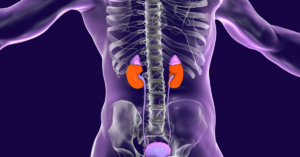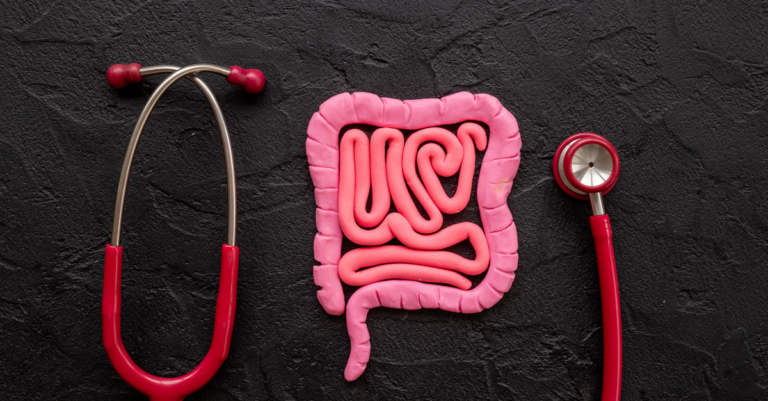Are you constantly feeling drained and overwhelmed? Many people today struggle with chronic fatigue and exhaustion, juggling demanding jobs, family responsibilities, and never-ending to-do lists. Even weekends, once a time for rest and relaxation, often become filled with activities.
If you find yourself relying heavily on caffeine, sugar, or other stimulants to get through the day, you might be experiencing HPA Axis Dysregulation. This condition occurs when your body’s stress response system is out of balance, leading to a range of symptoms like:
- Persistent fatigue
- Difficulty concentrating
- Mood swings
- Weight gain
- Insomnia
Let’s explore what HPA Axis Dysregulation is and how to address it.
Understanding the HPA Axis
The HPA Axis refers to the communication and interaction between:
the hypothalamus (H) and pituitary (P) in the brain, and the adrenal glands (A) located atop the kidneys.
This system plays a crucial role in our response to stress, regulating various bodily functions, including the immune response, digestion, energy usage, and mood stability.

HPA Axis Dysregulation
HPA Axis Dysregulation occurs when there is dysfunctional or dysregulated communication between the brain’s endocrine glands and the adrenal glands. This can manifest as either a reduced or increased output of adrenal hormones or an alteration in their daily pattern. Key adrenal hormones, such as cortisol and DHEA, are significantly affected.
Symptoms of HPA Axis Dysregulation
HPA Axis Dysregulation can present with a variety of symptoms, including:
- Morning fatigue
- Craving salty or fatty foods
- Anxiety
- Insomnia and other sleep concerns
- Muscle aches
- Increased irritability
- Afternoon energy slumps
- Craving caffeine and sweet foods after large meals
- Feeling unable to function without caffeine
- Decreased ability to recover after exercise
- Midsection weight gain
Causes of HPA Axis Dysregulation
This condition can develop suddenly or as a result of prolonged and repeated stress. Sources of stress can be diverse and may include:
- Recurrent illness or disease
- Pharmaceuticals such as steroids, opioids, antidepressants, and immune suppressants
- Physical stress from injury, diet, surgery, or substance addiction
- Emotional stress from relationships, financial insecurity, or significant life changes
- Environmental stress from toxins, and chemical pollution
The Impact of Stress on the Adrenals
The adrenal glands produce hormones that are essential for life, including cortisol, adrenaline, and aldosterone. Under chronic stress, the adrenals can become overworked, leading to what is often referred to as adrenal fatigue or adrenal dysfunction. This condition is characterized by the insufficient production of adrenal hormones, particularly cortisol.
Chronic Fatigue and Adrenal Dysfunction: Chronic fatigue syndrome (CFS) is a complex disorder characterized by extreme fatigue that cannot be explained by any underlying medical condition. CFS is closely linked with adrenal dysfunction, where the body’s ability to produce adequate cortisol in response to stress is impaired.
The Normal Daily Cortisol Pattern: Under normal circumstances, cortisol levels follow a daily pattern: peaking in the early morning to help us wake up and gradually decreasing throughout the day. This pattern supports various bodily functions, including metabolism, immune response, and energy levels. However, in HPA Axis Dysregulation, this pattern can be disrupted, leading to abnormal cortisol levels that contribute to symptoms of fatigue and stress.
Supporting the HPA Axis and Adrenals: Thankfully, there are supplements and lifestyle modifications that can help support the HPA Axis and adrenal health, helping to restore energy, stamina, and a sense of purpose.
Lifestyle Tips and Tricks: Supporting your Cortisol Awakening Response (CAR) is crucial for maintaining healthy cortisol levels. Here are some effective lifestyle tips:
- Morning Sunlight in Your Eyes: Exposing your eyes to morning sunlight stimulates the blue light receptors in the pineal gland, which helps to regulate proper cortisol levels and establish a healthy CAR.
- Exercising in the Morning: Morning exercise helps get your blood moving, aiding in the peaking of cortisol levels and kickstarting your thyroid gland into action.
- Cold Shower Rinse: Finishing your shower with a 30-second cold water rinse pushes warm blood back into your core vital organs, warming them up and energizing them for the day.
- Full Routine: Establishing a consistent wake-up and bedtime routine supports your hormonal balance and metabolic health by maintaining a regular rhythm.
- Daily Deep Belly Breathing and Meditation: Studies show that practicing deep diaphragmatic belly breathing and meditation for 10-20 minutes daily can significantly shift cortisol levels within just one month. These practices promote relaxation and reduce stress, supporting adrenal health.
Herbal and Supplement Support
There are various herbs and supplements that can support the HPA Axis and help manage adrenal dysfunction:
- Ashwagandha: An adaptogen that helps balance cortisol levels and reduce stress.
- Rhodiola Rosea: Supports the body’s resistance to stress and fatigue.
- Holy Basil: Known for its calming effects and ability to lower cortisol.
- Magnesium: Essential for adrenal health and overall relaxation.
- Vitamin B Complex: Supports energy production and adrenal function.
By implementing these simple yet effective strategies, you can take control of your health, reduce stress, and boost your energy levels. Remember, it’s important to listen to your body and seek professional guidance if needed. By prioritizing your well-being, you’ll be well on your way to a healthier, happier life.
References
- Bornstein, S. R., & Chrousos, G. P. (2017). Adrenocortical Dysfunction and Chronic Fatigue Syndrome. Endocrinology and Metabolism Clinics of North America, 46(3), 661-673.
- Nieman, L. K. (2016). Adrenal insufficiency. Endocrinology and Metabolism Clinics of North America, 45(1), 63-75.
- Raison, C. L., & Miller, A. H. (2003). When not enough is too much: the role of insufficient glucocorticoid signaling in the pathophysiology of stress-related disorders. American Journal of Psychiatry, 160(9), 1554-1565.
- Wurtman, R. J., Axelrod, J., & Phillips, L. S. (1964). The Pineal Gland and Stress. New England Journal of Medicine, 270, 1315-1322.
- Gerbarg, P. L., & Brown, R. P. (2015). Neurobiology and Neurophysiology of Breath Practices in Psychiatric Care. The Psychiatric Clinics of North America, 36(1), 121-140.


